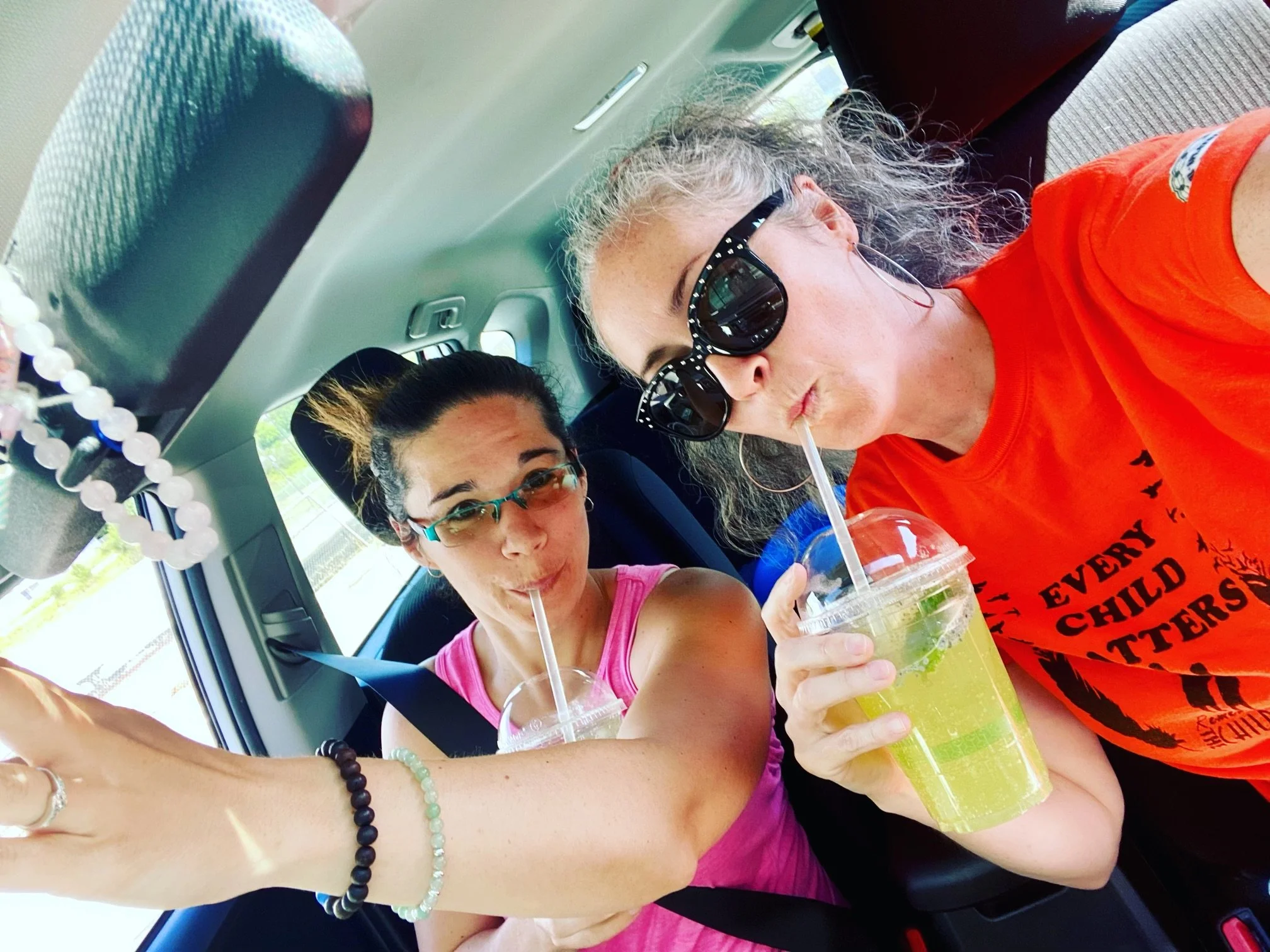Allyship: Eliminating Divisions and Celebrating Differences
My best friend, companion, and ally on my journey of Truth and Reconciliation.
In our ongoing journey through Truth and Reconciliation, the concept of allyship stands as a powerful bridge, connecting the narratives of Indigenous communities with those eager to listen, learn, and support. To be an ally is to take intentional steps towards understanding and acknowledging the injustices faced by Indigenous peoples without flinching. It's an invitation to embrace the emotions that may arise during this process, allowing them to flow without judgment or distraction.
Allyship, at its core, is not about rewriting history but influencing the trajectory of our shared future.
Observing and Feeling:
The first step in this path of allyship is to observe the injustices and truths being shared with unwavering attention. It's about allowing oneself to feel the emotions that emerge without hesitation. This process is marked by a conscious absence of judgment and distraction, creating the conditions for transformation. It's essential to recognize that the truths shared belong to the Indigenous communities; they are narratives deeply rooted in their experiences, not Non-Indigenous.
Seeking Understanding:
Privilege often operates unnoticed, yet its influence is profound. It grants individuals access to opportunities, facilitates connections, and opens doors to valuable resources. Within this privilege, there's an overlooked aspect: responsibility. This responsibility is particularly significant when examining its impact on minority groups, including Indigenous peoples.
To fully appreciate the obligations tied to privilege, let me share personal narratives that reveal the dual facets of privilege: positive and negative. My great auntie, Dolly, harnessed her influence to support my educational aspirations, exemplifying the affirmative side of privilege. In contrast, an encounter with a high school counsellor showcased how privilege can be wielded negatively, casting shadows of doubt and discouragement over pursuing one's dream.
These stories emphasize the substantial influence that privilege carries, either empowering and uplifting or stifling opportunities and aspirations. Recognizing the twofold nature of privilege is vital for comprehending its responsibilities and its potential as a catalyst for positive change.
Removing Divisions:
Allyship involves removing divisions that keep us separate from the Indigenous truths being shared. These divisions can manifest in various forms—race, gender, age, and time. To truly grasp the untold chapters of Canadian history, we must examine it with unbridled curiosity. Curiosity, as our guide, dispels fear, preventing it from establishing barriers to the truth. By embracing an unflinching look at the untaught history, we empower ourselves to contribute meaningfully to reconciliation.
Examining Privilege:
A critical aspect of this journey is examining one's unique privilege and the positionality it bestows. It entails recognizing the doors that are open to us, which remain closed to others based on factors such as gender, age, race, financial means, culture, societal standing, and political influence. To be an ally, we must assess how our decisions either support divisions or celebrate differences, discerning whether our choices are fear-based or love-based.
Action through Response:
It's natural to feel an urge to "fix" the past or rush to "save" or "help." However, the path of allyship calls for patience—a pause to allow emotions to run their course. Actions should emerge from a place of response, not reaction. When we react, our actions tend to be problem-focused rather than solution-oriented.
Reacting can serve to ease our discomfort with the truths of colonization, the joint actions of the government and the church, and the injustices committed against Indigenous nations. It's essential to face the harsh reality of the genocide of Indigenous nations, as well as the cultural genocide that ravaged their language, art, spiritual practices, traditional foods, plant medicines, societal structures, ceremonial traditions, and stewardship of the lands.
Allyship is not a passive role; it's an active commitment to understanding, empathy, and unity. It's about acknowledging the painful truths while responding with purpose and compassion.
By taking intentional steps to bridge the divide, we contribute to the ongoing journey of truth and reconciliation. In doing so, we honour the voices and experiences of Indigenous communities, lending strength to the transformative power of unity and understanding.

